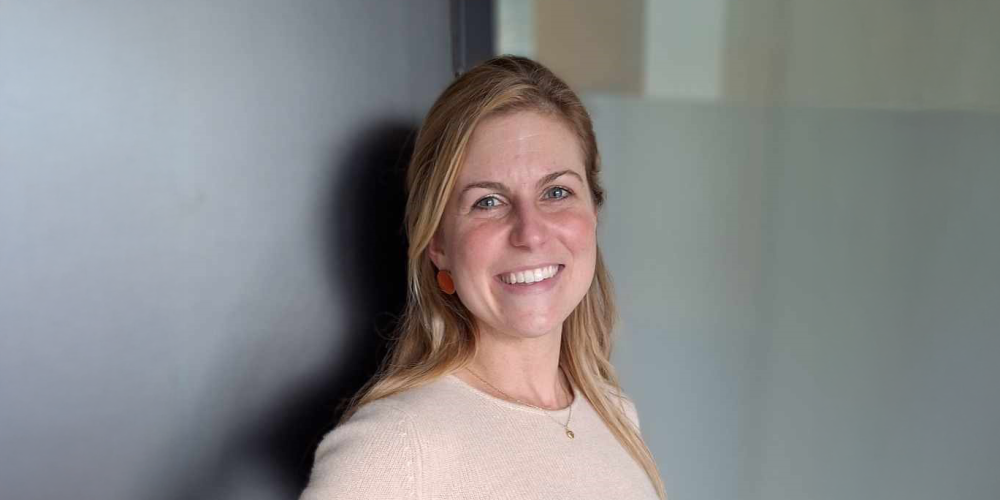
Science and politics seem to be drifting further apart. Yet, they need each other to develop solutions for today’s complex societal challenges. That’s why the Young Academy’s ‘Science Meets Parliament’ project pairs researchers with members of parliament. Several VUB academics are taking part: Marie-Laure Vandenhaute, Robin Vandendriessche, Ilse Rooman, Simon Weekx, Franne Mullens, and Eva Cloet. On Valentine’s Day, they will meet their political partners for the first time.
Marie-Laure Vandenhaute (35), Professor of Accounting and Auditing, researches (a) the impact of changing regulations on (non-)financial reporting and stakeholder decision-making, (b) incentives within audit firms, and (c) corporate crime in the Belgian business landscape from an accounting and auditing perspective. She also has a date with Brussels MP Gilles Verstraeten (N-VA).
What are your expectations for the first date?
During our first meeting, I will shadow Gilles in his work as an MP. This will help me gain a clear understanding of the tasks, responsibilities, and daily activities of a Brussels parliamentarian. I also hope to gain more insight into the workings of the Brussels Parliament and to explore where we, as scientists, can add value to the policy-making process.
Are you open to dating across the political spectrum?
The matching process was based on shared areas of interest, such as economic policy themes. However, I am open to conversations with politicians from different parties, as my goal is to strengthen the exchange between science and policy.
What would be a deal-breaker for you?
I would find it disappointing if there were little interest in scientific knowledge as a basis for tackling complex policy challenges. Academics have a responsibility to communicate their research in an accessible way. At the same time, policymakers should be open to these insights so that true synergy can develop between science and policy.
"I would find it disappointing if there were little interest in scientific knowledge as a basis for tackling complex policy challenges"
Do scientists need more love from politicians?
It is difficult for me to assess to what extent scientists from different research fields are actively involved in the policy-making process. However, I believe it is crucial for politicians to consult domain-specific expertise from academics. Scientists can play a key role in evidence-based policy development by providing policymakers with scientific insights and objective facts and figures.
Is your field of research 'sexy' to politicians?
I am convinced that my research is highly relevant to politics. Financial—and, more recently, non-financial—reporting helps stakeholders such as investors, lenders, suppliers, and customers make informed economic decisions. The audit of this information enhances trust in its reliability and contributes to a well-functioning economy.
It is essential to study the impact of regulatory changes in reporting and auditing, so that unintended or unforeseen consequences can be identified and addressed in time. Moreover, our research into corporate financial fraud is particularly relevant today—not only because the new federal government prioritises the fight against drug criminals and the detection of criminal assets, but also due to current societal challenges and the lack of insight into the entanglement of crime within Belgium’s economic landscape.
Are scientists too much like wallflowers?
If we want our research to have a real impact on practice and policy, we as scientists must focus on relevant and current issues. That is why it is important for professors and researchers not only to collaborate among themselves but also to engage in dialogue with practitioners and policymakers. For certain research questions, this collaboration is even indispensable.
For example, in a study with colleagues, I examined the effect of new regulations on the auditor selection process. Conversations with practitioners and policymakers were crucial in understanding this properly. Based on my experience and within my research field, I see room for improvement in Belgium—especially compared to the Netherlands, where practice, policy, and academia are more closely intertwined.*
Science Meets Parliament
Science Meets Parliament brings Flemish researchers and parliamentarians together to foster mutual understanding of each other's worlds. This initiative, a kind of 'pairing scheme,' pairs twenty scientists with twenty politicians.
In the spring of 2025, researchers will spend a day immersed in the political arena—attending committee meetings and gaining insight into the legislative process. Later, the politicians will visit the scientists’ workplaces to see first-hand how academic research takes shape. The goal? To bridge the gap between science and policy, ensuring that societal challenges are tackled with well-founded insights.
*This is a machine translation. We apologise for any inaccuracies.